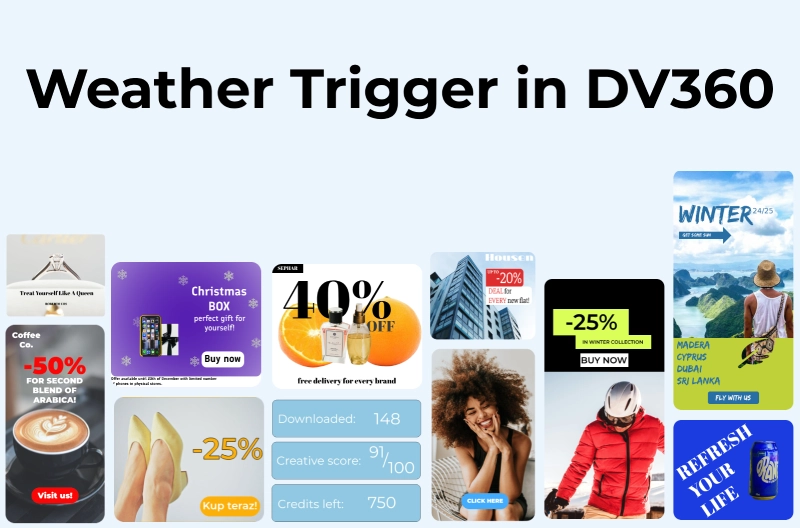January 24, 2024
by Bartosz Salamon
Share
Trigger marketing has become an essential tactic in the digital marketer’s arsenal, especially in an era where customer engagement hinges on relevancy and timing. This strategy involves creating marketing actions based on specific triggers or customer behaviors, ensuring that communications are both timely and pertinent.
The significance of such targeted strategies cannot be overstated in today’s fast-paced digital landscape. Customers expect personalization and immediacy, and trigger marketing delivers on both fronts. By responding to specific customer actions or events in close to real-time, businesses can significantly increase engagement, improve customer experience, and boost conversion rates.
In this realm, AdsLinkers emerges as a potent tool. It’s designed to manage and streamline trigger-based campaigns across multiple marketing systems, offering a level of efficiency and effectiveness that’s crucial for modern digital marketing. With its ability to handle various triggers and automate responses, AdsLinkers stands out as a vital asset for any marketing team looking to capitalize on the power of trigger marketing.
The Essentials of Trigger Marketing
Understanding Trigger Marketing
- Definition and Key Components: At its core, trigger marketing is about initiating marketing actions based on predetermined events or customer behaviors. These triggers can range from simple actions like a website visit or cart abandonment to more complex patterns like purchase history or browsing behavior. With AdsLinkers triggers could be way more interesting as we focus not on user behavior but their surrounding environment.
- How It Differs from Traditional Marketing Strategies: Unlike traditional marketing, which often relies on broad, scheduled campaigns, trigger marketing is dynamic and responsive. It allows for a more personalized approach, tailoring marketing messages to individual customer actions and preferences.
Possible Triggers in AdsLinkers Platform

The AdsLinkers Platform offers a diverse range of possible triggers to optimize marketing campaigns. These triggers include close to real-time weather conditions like temperature changes, rainfall, or snow, environmental factors such as air quality index, and even specific events like sports games or TV broadcasts. Additionally, the platform can incorporate data from stock market fluctuations, social media trends, and competitor activities, enabling businesses to tailor their marketing strategies dynamically and responsively.
The Role of Technology in Trigger Marketing
The Digital Transformation of Marketing
- Transition to Data-Driven Approaches: The digital transformation in marketing has seen a shift from traditional, intuition-based strategies to more nuanced, data-driven approaches like trigger marketing. This transition is marked by an increasing reliance on customer data to inform marketing decisions, enabling brands to deliver more personalized, relevant content.
- Selecting the Right Technological Tools: In the digital era, the success of marketing campaigns often hinges on the technology used. Selecting tools that not only align with your marketing goals but also integrate seamlessly with your existing tech stack is crucial.
Embracing Contextual Targeting in a Cookieless Era
Adjusting to the Decline of Cookie-Based Tracking: With the impending phase-out of third-party cookies, marketers are adapting to new methods of targeting audiences. Contextual targeting, which focuses on the context of web content rather than user behavior, is gaining prominence as a privacy-compliant and effective alternative. To increase effectiveness of that kind of advertising usage trigger marketing might be crucial.
Leveraging Advanced Technologies in Trigger Marketing
- The Role of AI and Machine Learning: Artificial Intelligence (AI) and Machine Learning (ML) are at the forefront of advancing trigger marketing. These technologies enable the analysis of large data sets to identify patterns, predict customer behavior, and automate personalized marketing responses.
- Real-Time Data Processing for Immediate Engagement: The ability to process data in close to real time is critical in trigger marketing. Immediate data processing allows for the swift activation of marketing triggers, ensuring that messages are relevant and timely, thereby significantly enhancing campaign effectiveness.
Maximizing Trigger Marketing with AdsLinkers
Comprehensive Capabilities of AdsLinkers
- Diverse Trigger Options: AdsLinkers supports a wide array of trigger options, from basic data like weather or more complex ones like brand sentiment or ads during TV broadcasts. This versatility enables marketers to tailor their trigger strategies to various customer segments effectively.
- Customizable Workflows: The platform allows for highly customizable workflows, enabling marketers to design unique trigger paths for different digital campaigns. This includes setting multiple conditional triggers, which can lead to a series of tailored marketing actions based on environment.
Implementing Dynamic Trigger Campaigns with AdsLinkers
Tailoring Campaigns to User: AdsLinkers empowers marketers to create campaigns that automatically respond to specific external data that surround customers. For instance, if there is a weather forecast switch, AdsLinkers can trigger a targeted display or YouTube campaign with a personalized ads to engage clients.

Crafting Successful Trigger Marketing Strategies
Designing Effective Trigger Campaigns
- Identifying Optimal Triggers: The first step in designing an effective trigger marketing campaign is identifying the most impactful triggers. This involves analyzing customer data to understand which actions or environment factors most consistently lead to conversions. For instance, in an entertainment setting, key triggers might include life sports events.
- Crafting Personalized Responses: Once triggers are identified, the next step is to craft personalized responses. This could involve creating tailored display content, personalized social campaigns or YouTube ads. The goal is to make each communication feel bespoke to the recipient, increasing the likelihood of engagement.
Measuring the Success of Trigger Campaigns
- Key Performance Indicators (KPIs): Essential metrics for evaluating the success of trigger campaigns include CPC, click-through rates, conversion rates, cost per action, cost per sale and overall ROI. Tracking these KPIs helps marketers understand how effectively their triggers are driving desired actions.
- Data-Driven Optimization: Continuous optimization is key to successful trigger marketing. This involves regularly analyzing campaign data to identify areas for improvement, such as refining the timing of triggers, tweaking message content, or segmenting audiences more granularly.
The Future of Marketing with AdsLinkers
The future of marketing lies in the ability to blend technology with human insight, creating campaigns that are both data-driven and intuitively appealing. AdsLinkers embodies this future, providing a gateway for marketers to unlock the full potential of their strategies in the ever-changing digital landscape.
As we look ahead, the role of platforms like AdsLinkers in shaping marketing strategies will only grow stronger. They offer not just a solution but a strategic partner in the quest to stay relevant, responsive, and resonant in a world where customers’ needs and behaviors are constantly evolving.








